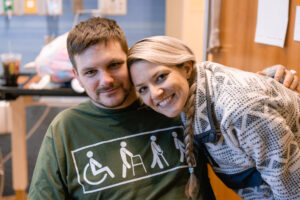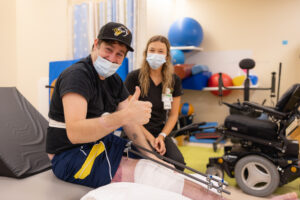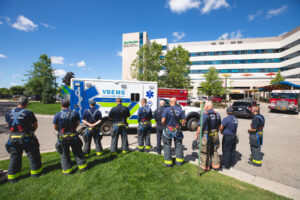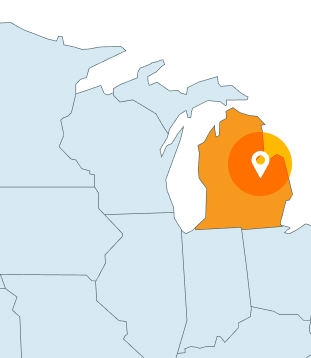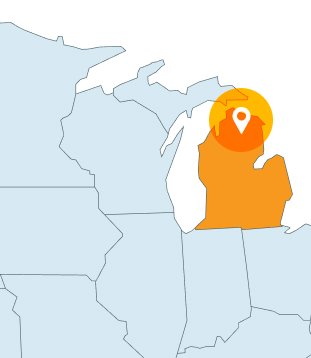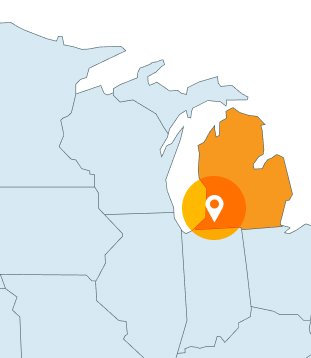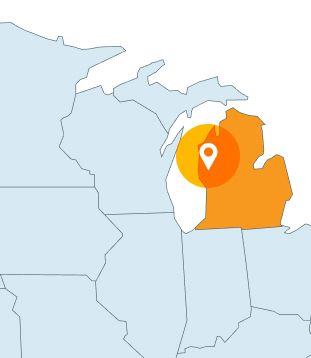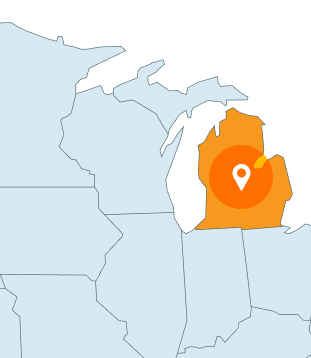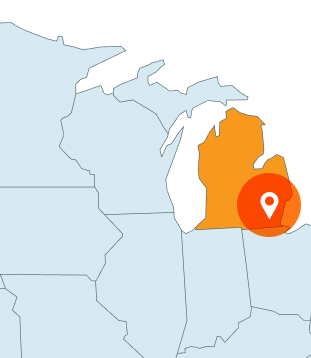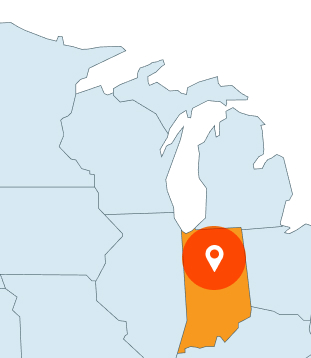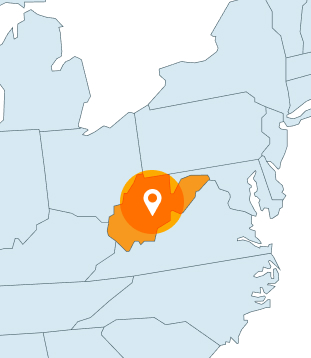Amputation Rehabilitation
Why choose Mary Free Bed?
Research shows that early rehabilitation leads to better outcomes. We specialize in the amputation rehabilitation journey and helping individuals adjust to life after limb loss.
With extensive knowledge and compassion, we aim to provide the best possible outcomes, starting with our inpatient rehabilitation program. Every year, we consistently achieve results that exceed national averages in patient satisfaction, functional improvement and return-to-home settings.
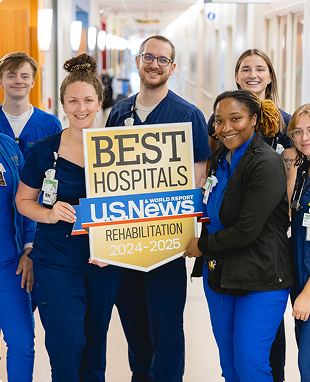


Amputation Rehabilitation Accreditation
Our inpatient Amputation Rehabilitation Program is accredited by the Commission on Accreditation of Rehabilitation Facilities International (CARF). This rigorous process ensures the highest quality rehabilitation for individuals who have experienced an amputation. Our treatment team collaborates with you and your family to create a personalized rehabilitation plan that addresses your specific goals.
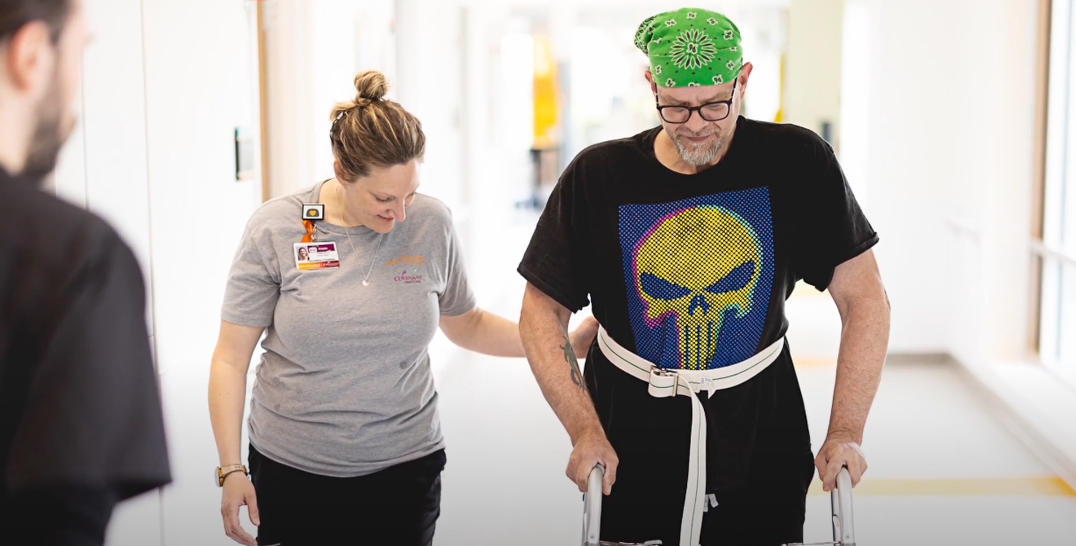
The Perfect Fit: Prosthetist-Therapist Collaboration in Mary Free Bed Rehabilitation
Your Amputation Recovery Journey at Mary Free Bed
Prehabiliation: Preparing for Success
Our Prehab Program is designed to help you feel confident and prepared before surgery. This program is designed to ensure you’re ready to begin your journey with the knowledge, tools and confidence to achieve the best possible outcomes.
- Pre-operative consultations: Learn what to expect and how to prepare for surgery and rehabilitation.
- Prosthetic education: Understand prosthetic design and functionality to set realistic expectations.
- Peer mentorship: Connect with a certified mentor who has experienced limb loss and can offer insight and encouragement.
- Physical preparation: Build strength and flexibility with exercises tailored to your needs.

Inpatient Rehabilitation: Comprehensive Care for Amputation Recovery
Inpatient care offers intensive therapy while ensuring your medical needs are met 24/7. Your personalized care plan prepares you for success—here at Mary Free Bed and beyond. Whether you’re continuing with outpatient therapy, starting the Day Rehab Program, or exploring activities at home and in your community, you’ll have the tools, confidence and support you need to thrive.
At Mary Free Bed, every therapy plan is personalized for the patient’s specific needs. The duration and intensity of your inpatient therapy program will depend on your goals. Typically, patients engage in three hours of therapy, five days a week, with weekends reserved for rest and family visits.

Outpatient Therapy
Our outpatient Amputee Clinic offers medical care and support for those who have lost a limb due to illness, injury or congenital differences. The clinic team includes a physician specializing in physical medicine and rehabilitation, a rehabilitation nurse, a physical therapist, an amputee care liaison, and a prosthetist. This team collaborates to provide the best care, focusing on your goals and progress.
To access our clinic services, you’ll need a referral from Mary Free Bed or another medical provider. We are a preferred provider for most area insurance groups.

Ongoing Support
We’re committed to supporting you for as long as you need us. After completing the Mary Free Bed Inpatient Amputation Rehabilitation program, we offer:
- Outpatient medical care and therapy
- Orthotics & Prosthetics + Bionics services
- Peer support and mentorship opportunities
- Wheelchair and Adaptive Sports program

Specialty Services
Our additional specialty services include:

Community Resources
- Our Amputee Mentor Program pairs you with other amputees who can offer insights and support based on their experiences.
- The Great Lakes Amputee Network is Mary Free Bed’s support group for those affected by limb loss. The group meets monthly to discuss topics related to quality of life and peer support. The group also enjoys fun outings such as kayaking and bowling. Our patients find that mentoring and peer support have a lasting positive impact on their lives.
- The Mary Free Bed Wheelchair and Adaptive Sports Program is one of the largest programs of its kind in the United States. Every year we offer enriching recreational opportunities to hundreds of people with disabilities of all ages. We’ll help you find the rush you’re looking for!

Meet Your Amputation Rehabilitation Team
You and your family or caregivers are the most important members of the team. You’re encouraged to have an active role in your treatment plan and help set goals for your rehabilitation.
Your dedicated team includes experts from various disciplines, all working together to maximize your recovery and independence.
Frequently Asked Questions
Here are questions we often hear from patients who have experienced an amputation. Talk with your treatment team about specific questions or concerns.
How much pain will I feel after my amputation?
The amount of pain varies from patient to patient. Whatever level of pain you have, we want to stay ahead of it. Your doctors and nurses will work closely with you, prescribing and adjusting medications to ensure your pain is well controlled to help keep you comfortable.
Phantom limb sensation – the perception of still being able to feel your limb – is very real. Most amputees experience this phenomenon. You may have milder pain in the removed part of the limb, called phantom limb pain. If this pain is a lingering problem for you, your amputee liaison can suggest medication, compression, mirror therapy, massage therapy, or electrical stimulation.
When will I receive a prosthesis?
Most of our patients are ready for a prosthesis prescription six to eight weeks after their amputation. It may be a bit longer if you have other medical conditions. If you’re a candidate for a prosthesis, our team will provide a personalized timeline. When you’re ready, we have board-certified prosthetists on-site in our Orthotics & Prosthetics + Bionics department to create your custom prosthetic device.
The fitting process usually takes between two and six weeks, depending on your individual needs. The shape of your limb changes as post-surgical swelling disappears, so it frequently takes more than one attempt before you have the final fit.
How does therapy help prepare me for my prosthetic device?
Therapy plays a critical role preparing you to use your prosthetic device safely and comfortably. You’ll work on strength training, range of motion, desensitizing your residual limb and developing good soft tissue mobility. Therapy also includes practicing daily living activities and learning home exercises.
Will Mary Free Bed provide me and my family with emotional support after amputation?
Absolutely. We believe your emotional recovery is as important as your physical rehabilitation. Losing a limb can feel a lot like losing a family member. It’s a deeply personal experience, and the grieving process and recovery are unique to you.
What’s happening at Mary Free Bed?
Ready to get started with Mary Free Bed?
Wherever you are in your journey, we’re ready when you are. Our team is here to listen, support and help guide your recovery. Whether you’re just starting out or picking up where you left off, we’re ready to support your goals—big and small.
